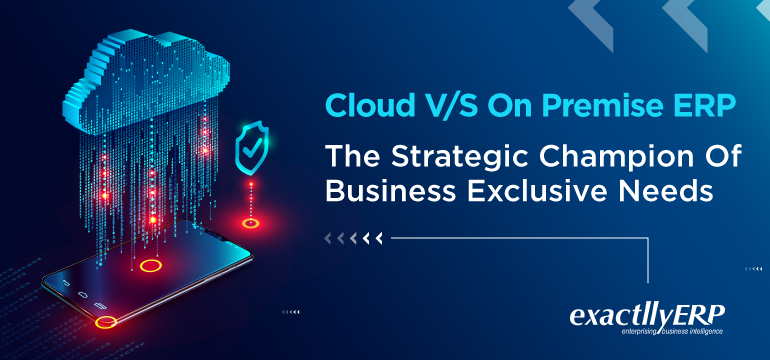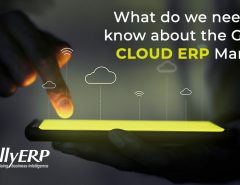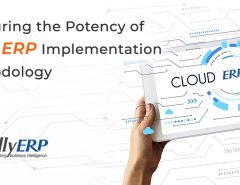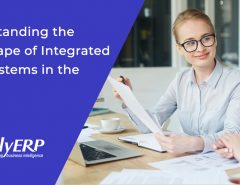Cloud v/s on-premise ERP is the most cliched point of conflict when a business owner wants to choose an ERP manager. The market of ERP is bombarded with multiple choices and therefore, to make a choice between cloud and on-premise, ERP is indeed a tough one.
Every business is different and so are their needs & it is these needs that play a vital role in choosing the right ERP system for the company. Now, expanding on the points of difference between cloud and on-premise ERP, we elaborate on the following:
Definition of On-Premise ERP:
Enterprise resource planners belonging to this criterion are self-explanatory- that is, they are installed in the house, on the premises of the company, in the physical space of the office. This system does not require a mandatory connection to the internet and therefore is critical if to be used outside the office. Just like other ERP functions, there are no differences when it comes to assisting in the streamlining of production, sales, marketing, and finance processes of the business.
At what Points are they Different from Clouds?
The most obvious and the most significant point of difference between Cloud ERP and On Premise set-up is the process of their implementation.
Cloud-based ERP systems are installed by channelizing them through the vendor’s servers that are later on accessed conveniently. On-premise, systems are installed locally in the company-owned machines and servers.
There is also an existing ‘hybrid ERP’ system where the cloud system of ERP is hosted on the private servers of the organization.
Generally, cloud based ERP systems are priced through yearly or monthly subscriptions & the additional fees are charged for recurring support, updates, and training. Cloud ERP systems are considered operating expenditures.
On-premise, ERP systems are generally priced through a one-time fee, which in turn depends on the organizational size. Here also, recurring fees are charged for training, updates, and support. On premise, systems are considered capital expenditures.
Hosted vs On Premise: The Advantages and Disadvantages:
A. On Premise ERP:
On-premise systems of ERP are easier to deploy than cloud-based systems. Also, the feature of customizing as per the needs of the organization can be done more efficiently with the best on premise ERP systems. On premise, systems of ERP give greater control to the owners and authorized operators of the company that includes the regulation of the data security. This is indeed a welcoming feature because ERPs, amidst any other business management systems, pose as the biggest target of cyber threats. ERP on premise systems, although has a pain point and that is the inconvenience of mobile accessibility.
B. Cloud ERP:
The security of ERP data has always been a top concern of business owners. Before earning their due popularity and preference, cloud-based ERP systems were scathed with the skepticism of the business owners. Since the software acts as a storage of data of different departments of the business, the cloud framework seemed a bit unconventional to the ERP customers previously, in terms of security concern.
But thankfully, as the technology has upgraded significantly, it has brought the cloud-based ERP systems into the most preferred list. With enhanced security and a streamlined channel of data exchange, cloud-based ERPs today provide impermeable security assurance.
Most of the cloud-based ERP systems come with easy mobile accessibility and a lot of brands offer various apps with a plethora of features.
The ease of data access in ERP lets the authorized users use it from any device. But more accessibility means a lesser scope of customization. As mentioned earlier, different organizations have various exclusive needs that can only be regulated by a cloud-based ERP.
Some More Takeaways:
Another significant point of difference between cloud-based and on premise ERP systems is the cost. Implementation costs of cloud-based systems are higher than that of the on premise setups.
On premise systems offer more control over data and the modules that are included in them are:
- Finance & accounting
- Sales
- HR
- Inventory
Why choose ERP with an On Premise Framework?
On premise systems of ERP offer benefits like complete control over data regulation, lesser dependency on the vendor, lower cost of implementation if bought one-time, the security offered is better controlled and monitored.
Industries used in Manufacturing, Healthcare, and Construction.
Why choose ERP with a Cloud-Based Framework?
Cloud-based ERP framework offers unparalleled business intelligence, the process of implementation is faster, enables the user more for focusing on core competencies, saves cost, robust security of data.
Industries used in Manufacturing & distribution, non-profit organizations, construction.
Choose Exactlly ERP for Best Results:
exactllyERP diminishes the gap between cloud-based and on premise setups by offering the best features of both mediums. Meet all your business’s core competencies within its client-server architecture that lets you access data from any part of the globe seamlessly, without the involvement of third-party support.
Feel free to Connect With Us and get a Free Demo.





Leave a Reply